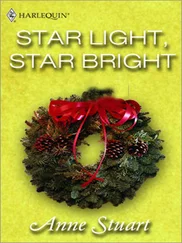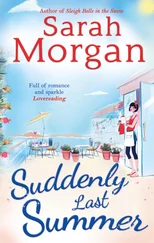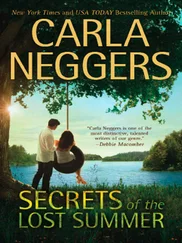Findlay was rarely in the office. He did most of his work from the pub on the corner, where he habitually sat at a table in a sunny corner by the window with a pint glass and a whisky in front of him and an ashtray brimming with cigarette butts. He was Scottish and spoke with a broad accent. He looked to be in his forties, and had thinning hair that was turning grey and mournful eyes that gazed on the world with a kind of weary resignation.
‘Yes it is,’ Adam answered, recovering from his surprise.
Findlay nodded. ‘How’re you liking our wee paper then?’
‘It’s fine. I mean, I’m enjoying working here.’
‘Is that so? I expect you’ll be wanting to become a journalist yerself one day, is that it?’
‘Hopefully, after university anyway.’
Findlay seemed amused. ‘University eh? You’ll no’ want to be working at a place like this then. I’ll expect you’ve bigger plans.’
There was something faintly mocking in his tone, though Adam didn’t feel that he was the target, but rather that Findlay was mocking himself. The humour in his eyes faded and was replaced with something closer to regret. He placed a hand briefly on Adam’s shoulder.
‘Don’t mind me laddie,’ he said, and with that he wandered off.
At the end of the day Adam caught a bus back to Castleton. It was a sunny late afternoon, the heat of the day trapped in the narrow lanes between the hedgerows. In the fields the grass was drying to pale yellow. The hedgerows of hawthorn and crab apple and cow parsley were in full bloom. Towards the woods the air shimmered in a haze.
As the bus rounded a bend and crossed a stone bridge, a cluster of vehicles and caravans parked in a cut off the bridleway came into view. A grey horse was tethered to a tree stump near an ancient truck and smoke drifted lazily across the river. Back in April Adam had first seen the camp on the way home from school. David had stayed late for cricket practice and the only other person on the bus had been an old man who sat across the aisle. He had pale skin and thin wispy hair and his eyes were rheumy and red-tinged.
‘Gypsies,’ he’d muttered. ‘Come around every few years they do.’ His mouth turned down in a grimace and he said something quietly to himself.
A little further along the road the bus had stopped and the old man got off and walked towards some cottages set back from the lane. The bus had barely moved off when it slowed again and pulled hard over so that the hedge scraped against the side. Out of the window Adam saw a brown horse carrying three figures on its back. Two were small children, and behind them was an older girl of perhaps seventeen or so. Her head was almost level with Adam so that as she passed by only the glass and a few feet of space separated them. He registered wide, dark eyes, a full mouth, and thick, unruly, almost jet-black hair. She stared back at him without expression. She wore a simple shapeless plain cotton dress. After she had passed he looked back and glimpsed her bare legs and the full rounded shape of her breasts against the material of her dress. The horse had no saddle and only a rope for a bridle. As he watched the girl kicked her bare heels into the horse’s flanks, and then the bus turned a bend and they were lost from sight.
The gypsies had stayed throughout the spring and into the summer. The old women called at houses selling lucky charms and muttering curses if they found a door slammed in their faces. The rate of break-ins and petty crime in the area rose, which people generally attributed to the gypsies. Johnson’s sawmill was broken into one night and a load of lumber stolen, but though the police went to the gypsy camp none of it was ever recovered. Kyle warned Adam to steer clear of them.
When the bus reached the square in Castleton, Adam crossed the street towards the newsagent’s with his jacket slung over his shoulder. The bell above the door rang as he went inside. He paused, allowing his eyes to adjust to the comparative gloom. The shop smelt of sherbet and liquorice, underlain with the whiff of tobacco. Angela smiled when she saw him.
‘Hello, Adam.’
‘Hi.’ He went to the fridge and took out a cold bottle of coke. ‘Hot out there.’
‘It’s lovely.’ Angela pulled a face. ‘Not that I would know. I’ve been stuck in here all day.’
He handed her some money, and as she operated the register her smock tightened over the swell of her breasts. His gaze lingered for a fraction of a second and then he fixed his eye on the magazine rack.
‘Here’s your change.’
‘Oh, thanks.’ He feigned distraction, hoping she wouldn’t notice the flush of colour creeping into his cheeks. Her eyes were blue, but unlike any blue he had ever seen. Pale, but shimmering with light. Her long pale yellow hair was bleached in highlights by the summer sun, her arms brushed with a light tan.
‘How’s your job going?’ she asked him.
‘Fine. I like it.’
‘Are you going to the disco?’ She gestured to the notice board on the back of the door where a bright orange flyer advertised a disco at the church hall at the weekend.
‘Are you?’ he asked impulsively. He realized his question could almost be construed as asking her out and he felt his cheeks burn. He wished the ground would open up and swallow him whole. If she noticed, however, she didn’t let on.
‘Yes,’ she answered.
The door opened. ‘Well, I better go,’ Adam said, relieved and disappointed at the same time.
‘See you at the weekend then.’
‘Right. See you there.’ As he left he caught the eye of a woman coming in. She smiled at him.
He walked down through the town to the bridge and then along the path across the water meadow. On the far side Johnson’s sawmill was hidden in a copse. The familiar tangy scent of cut pine and sawdust hung in the air. The gates were open and two trucks were parked in the yard outside the cutting shed. The saws were silent. On one side of the yard stood a two-storey wooden building with an outside staircase that led to the office door. Underneath was a room where the men had their tea. Every morning Adam left his bike around the back before he caught the bus to Carlisle.
As he passed the open tearoom door he almost tripped over Nick who was sitting outside smoking a cigarette in the shade. He had left school by then and was working full time at the sawmill.
‘Sorry, didn’t see you there.’
Nick squinted up at him, his expression managing to look like a sneer, though it might have been the sun. ‘Been working hard then? All that sharpening pencils and making the tea, you must be knackered.’
Adam ignored the sarcasm and stepped over Nick’s legs.
‘Better watch you don’t get a blister on your little finger.’
‘I’ll try to remember that. Is David around?’
Nick shrugged unhelpfully and picked a shred of tobacco off his lip. ‘Somewhere.’
Just then David appeared at the top of the stairs. He was tanned and muscular from working outdoors in the sun, in contrast to Nick, whose face remained pale beneath his black hair and who still looked like a skinny kid.
‘Have you finished?’ Adam asked. He was thinking that they could go down to the river for a swim but David shook his head.
‘We’re working late today. There’s an order that needs doing.’ He aimed a kick at Nick’s foot. ‘Come on. We’ll see you tomorrow, Adam.’
Adam watched as they headed towards the shed and Nick laughed at something David said. He knew that when Nick had applied for a full-time job a few months earlier David’s dad hadn’t been too keen on the idea. Adam had overheard David pleading Nick’s case, insisting that Nick couldn’t be blamed for the way his dad was, and though in the end Mr Johnson had conceded, Adam had the feeling he’d never really been happy about it. He wondered if Nick knew about that.
Читать дальше
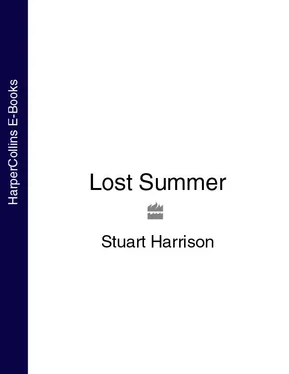
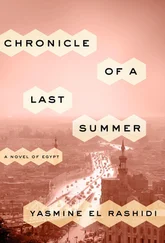

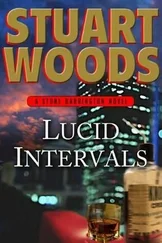
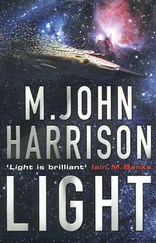
![Маргарет Миллар - Rose's Last Summer [= The Lively Corpse]](/books/384369/margaret-millar-rose-s-last-summer-the-lively-c-thumb.webp)

